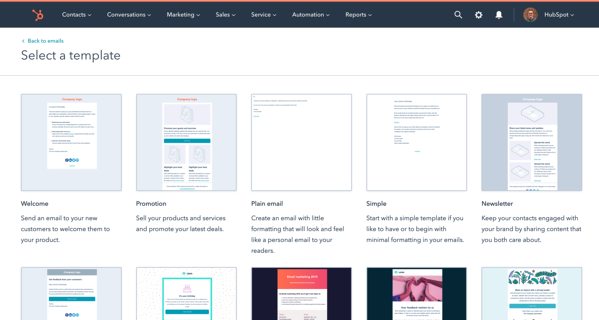People put great ideas into action all the time. Sometimes they take off and sometimes they fall flat, yet the original concept was still sound. Failure can see brilliant business ideas languish on the shelf never to see the light again or, if they do come back, it may come from another source that gets that critical timing and execution just right.
Seldom does the originator stick to their guns and get proven correct in the long grass. One great example of this was movie director Michael Mann and the 1995 crime flick, Heat. Regarded as one of the most influential films of its genre, Mann’s epic crime thriller inspired several other works. Recently, Mann has announced a sequel in the form of a novel which may hit the big screen soon after.
What most people don’t realize is that Mann made Heat six years earlier with the same plot and script in a straight-to-TV movie called LA Takedown. The concept was sound but the execution was not. He could have sat on the failure but he knew the bones of a great movie were there. Add in the big budget, significantly upgrade the production values and invest in a world-class ensemble including Al Pacino and Robert DeNiro and the rest is history. A great idea, revisited with the prior mistakes learned from, resulted in an improved director who was able to draw the right resources and suddenly one of the best movies of the genre was spawned.
Thankfully, he gave a great idea another shot to prove himself right.
There's a learning here for many companies & entrepreneurs.
Idea Revisited+Learnings+Resources = Maximizing Opportunity to Success.
Whether that’s from a creative sense of sales and marketing, or down to the fundamentals of a product or service experiment. Sometimes great ideas and companies don't make the breakthrough but that doesn’t always mean they were not on the right track.
Jack Canfield, author of ‘Chicken Soup for the Soul’, had 144 rejections before he received a book contract.
When Airbnb started back in 2008, it struggled to find any footing. Prominent investors all over Silicon Valley passed on the idea, and the team had to resort to some patchwork financial fixes to make ends meet.
Also in 2008, founder of Evernote, Phil Libin made the hard decision to shut the company down, thinking it was probably never going to take off. Then, in a strange twist of fate, an overseas investor pledged $500,000 to give the product more momentum- and that one extra push was enough to give Evernote the foundation it needed to succeed.
How to revitalize a great business idea and maximize its chances of success.
As Henry Ford said, “If I had asked people what they wanted, they would have said faster horses.” Sometimes your ideas are ahead of time so it’s not proven to market yet. This is where the biggest wins and most frustrating lack of takeoffs will happen. So how do you give yourself the very best chance to thrive if it’s already failed once or multiple times?
- Park your ego at the door and accept responsibility for your own failure. When it comes to failing, our egos are our own worst enemies. If you've made a mistake, admit it. Welcome to the human race! Don't blame others or circumstances and drop the baggage. Now is the time for the growth mindset and being open to the right opportunities.
- Make sure the pieces from your failure have been sufficiently learned from. Keep digging down on the why and document everything you can to either draw back on or pass on to the next team you are going to surround yourself with. Every failure is a learning experience but it helps if you properly document it and put measures in place to avoid history repeating itself on the next step. This will guide you; whether it's a tweak to your marketing mix or wholesale changes that are required to make it successful. Take stock of what you have learnt. Repackage your knowledge, experience, skills and move on with confidence to accomplish your purpose.
- Build relationships with the right kind of people you would need to realize it. No man or woman is an island and it’s time to really examine the talent in the room that can get your idea to take off. It’s great in the beginning to have people that are ‘jack of all trades’ as you and they may need to understand every facet of the concept before hiring or bringing in that extra talent from outside.
However, if you have already failed before but know the concept is still sound, ask yourself this question?
"Why could I not find enough customers?"
Sounds super obvious but whether it's Marketing or Sales or a mix of both, customer generation is 101 in business and it’s the reason why a company like ours exists.
Founder and CEO Patrick Rhatigan worked in Detroit and saw a great business fail because they lacked the resources, talent and know-how to actually generate interest in the product. The leadership were fantastic product developers and knew their craft but, without sales, it failed. That experience shaped his vision and he built a company that specializes in hunting and developing opportunities that helped hundreds of businesses survive, strive and eventually thrive across North America and now worldwide.
If you don’t think you could afford an outsourced sales specialist solution or spend hundreds of thousands building your own Sales team, you are going to have to develop a structure from scratch that can support that. Not easy, but invest time in workshops, podcasts, video tutorials, seminars but, most importantly, reach out and network to find the people. You need to do everything you can to improve your sales strategy as that is the lubricant that holds a business together. - Where is the final destination and how do you want to get there?

Before embarking on any journey, you need to know where you are going if you hope to get there, even if it seems very far away. If you live in Maine and need to get to California, you won’t be able to see California from the start. In fact, you won’t be able to see further than the end of your street, but that’s the point.
One move at a time and sometimes that might feel like standing still i.e waiting at the station/airport for the next big thing that’s going to propel you forward. Knowing where you want to go will at least move you towards your target with purpose.
Think of any mode of transport just like the vehicles to propel your idea forward. The fastest way would be to hire a private jet on a private airstrip and skip even the airport security. Trains might be a great way to get more experience along the way and, whilst slower, it’s just the way you roll. A car trip is going to have its own adventures and drawbacks but maybe stops along the way are necessary.
One thing is for sure. If you want to walk all the way, it's going to be a lot slower and unexpected things will arise along the way. That’s assuming you can cross the Appalachian, Rocky Mountains and the Coastal Range. A hell of an experience I’m sure but it's a route that could take up to a year to complete, versus flying in around five hours.
You need to look at all facets of the business the same way. What is the right method for getting this idea moving forward and in the long run does hiring internally or externally more expensive options pay off in the medium to long term. - Execution is as important as planning. A good idea is only as good as the people who are able to execute it. If you have designed the perfect workflow, you may still need an Operations Manager skilled enough to oversee it. If you have ambitious financial goals, you need a controller with enough experience to help you hit those goals. And, of course, if you need to create demand in your product or service, you need the people with the talent and resources to be able to do it. Find your team, whether it’s internally or test drive with the best outsourced solutions you can find.
- Don’t be afraid to ask for help Back to point 1 and ego. We all like to think we know it all and often we don’t want to disclose to our peers our weaknesses. That holds you back as you miss opportunities to learn and source extra talent. Talk to those around you, be it in person or online about where you need help. People trust other people, not companies, so without talking, you may miss out on finding the perfect recommended person or resource that is going to help you drive the business forward. Stay humble and keep looking to learn.
- Trust Your Intuition Leaders should never just blindly rely on instinct but, as long as you are open to the above six points first, then intuition should always be that element to hold on to and trust.
The future is never certain. Information can be imperfect or overwhelming. Recognize when your intuition is speaking to you, and listen. Leaders who are able to rely on both analytics and intuition make better, more aligned decisions, and they are far more agile in the face of change. Essential ingredients to get you to your destination.
If your company needs help get in touch today and see what we can do to support your revenue goals.




